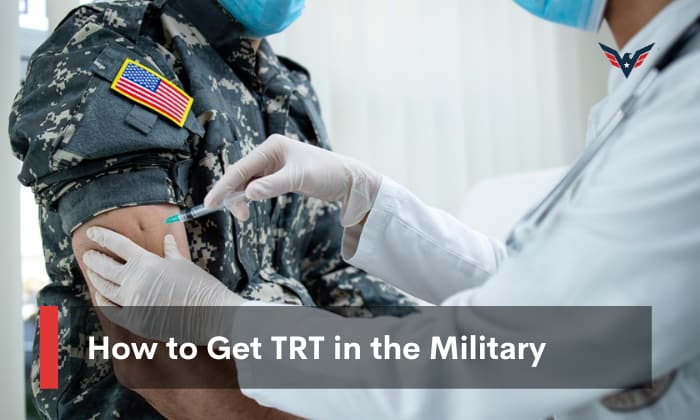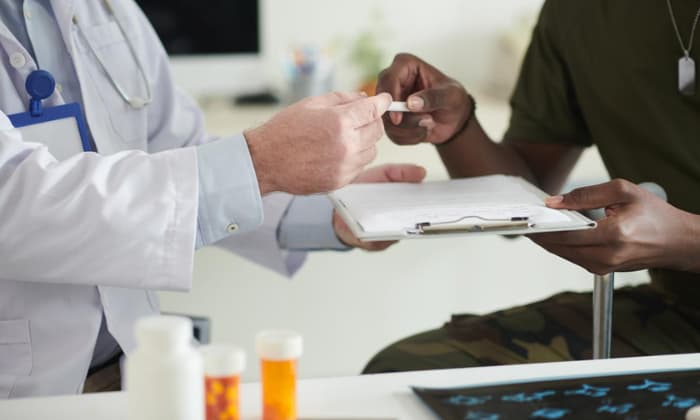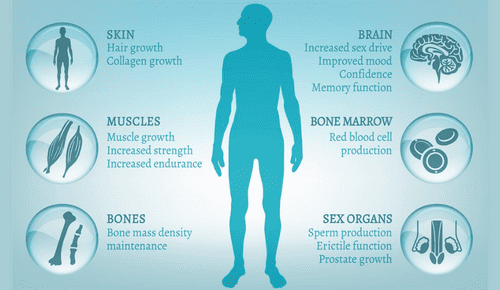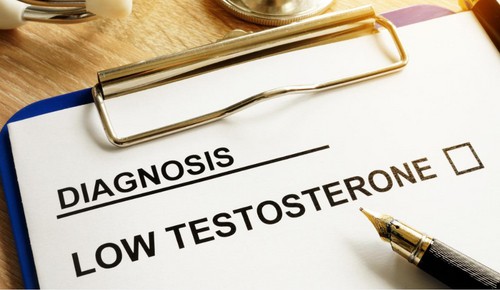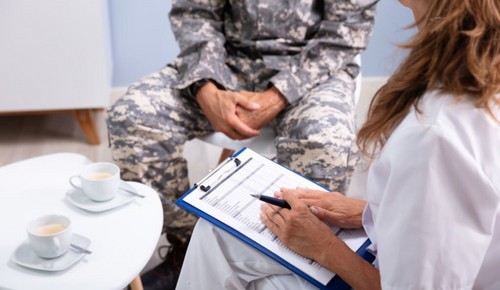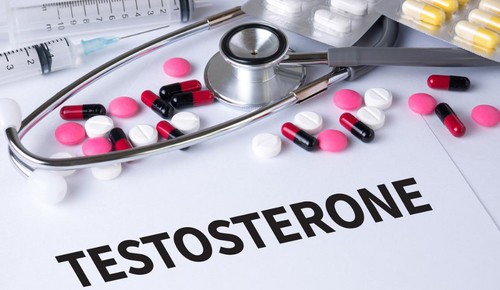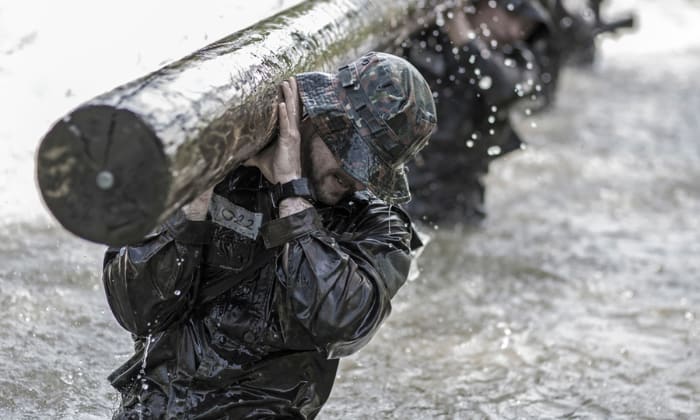If you go through various resources on how to get TRT in the military, you will get a unified answer that the military does not endorse this approach.
However, an article published by Health.mil provides detailed information indicating that the military surveyed the armed forces in 2017 to identify soldiers who have received TRT for medical purposes.
To obtain testosterone replacement therapy in the military, they must follow the clinical practice guidelines of the American Urological Association.
Also the military requires that soldiers must establish TRT as a medical necessity for them to obtain it. Continue reading to discover more.
Table of Contents
Proper Way to Get TRT in The Military
1. About TRT’s role
Testosterone has an integral role in the reproductive processes. It is also significant in fueling sex drive and general performance.
Furthermore, it affects red blood cell creation, impacts fat distribution, and muscle mass increment, promotes bone growth, and indirectly influences bone metabolism.
What could be the problem if there is a low T in combat veterans?
Unaddressed low testosterone as work-related stress can heighten the risk of a soldier’s health issues. Some examples include Diabetes, heart disease, anemia, persistent tiredness, metabolic syndrome, obesity, premature frailty, and muscular degeneration.
Moreover, you can directly associate testosterone deficiency with heightened stress levels, fluctuations in mood, and depressive symptoms.
So, prioritizing diagnosis and treatment can help lessen these risks and enhance overall health.
Are you familiar with how to get TRT in the military? If so, this could be the resolution to your hypogonadism problem.
2. Eligibility for TRT in the military
The VA tests testosterone levels to assess eligibility for TRT in the military, as the American Urological Association recommends it should be less than 300 ng/dL (nanograms per deciliter) with indications of sexual dysfunction, breast growth, and fatigue.
Furthermore, in severe instances, such as cancer therapy, TRT is exclusively offered to military troops.
How to Obtain TRT in the Military
Step 1 – Assessment:
The first step in obtaining TRT in the Navy, US Air Force, and Army National Guard is to assess whether you are experiencing symptoms that indicate low testosterone or testicular hypofunction.
In the military, you can only receive support for TRT if you can establish a medical need for severe cases like cancer treatment.
Although there are reports of soldiers using TRT for alternative purposes, it is significant to acknowledge that the military strictly restrains using TRT solely to enhance human performance.
After pointing out the signs of low T, you must seek valuable professional advice from an endocrinologist for further guidance.
They will offer you suitable recommendations following the guidelines set forth by the AUA, a testosterone level below 300ng/dL indicates the need for TRT.
Step 2 – Examine the available options:
There are two ways to get the TRT in the military.
- 1st option/ way: Off-based Medical Assistance
An article asserts the VA prescribes testosterone based on their conducted examinations.
Additionally, soldiers are required to undergo thorough evaluations by endocrinologists. The report emphasizes that troops receive more meticulous care at the parent VA institution than at the community-based VA.
However, on the other hand, as mentioned earlier, the military does not endorse TRT, making it challenging for individuals to pursue possible examinations for accessing this medication through the VA.
Testosterone therapy for veterans, unfortunately, does not receive coverage for testosterone therapy from the VA due to insufficient support for the medicinal aid itself.
A survey conducted in 2015 by the VA revealed that there were cases of individuals being prescribed TRT without appropriate medical justification or adherence to legal treatment protocols for severe conditions.
As a result, soldiers who require TRT prescriptions seek off-based medical assistance to receive the necessary care they need.
- 2nd option/ way: Online Purchase
Another option to obtain TRT is through online purchases. Online TRT for military personnel is feasible; however, it is crucial to ensure that you purchase from sources that adhere to the regulation set by the Drug Enforcement Administration.
It is crucial to bear in mind that TRT necessitates a valid prescription. Hence, if an online shop fails to request a prescription, exercising caution is paramount as they may be operating illegally, and there is no assurance regarding the quality or safety of their products.
Moreover, a pharmacy must have a legitimate US address. Additionally, If an online pharmacy requires you to fill out a form before providing testosterone prescriptions, it is prudent to avoid involvement, as this raises concerns about its legitimacy.
Merely completing a questionnaire does not meet the requirements for obtaining a legal prescription.
Step 3 – Examine the ways to dosing testosterone:
If your doctor prescribed you TRT, you have several administration methods choices.
You and your doctor can choose between the six options, including injectable, oral testosterone, intranasal, testosterone implants or pellets, topical or transdermal, and cheek or buccal patches, depending on your body’s demands and comfort level.
These options vary based on factors such as cost, dosage, duration of treatment, application timeframe, potential side effects, and the method of administration.
Considering the significance of these factors, it is essential to have a thorough discussion with your doctor. Deliberate on the available options and collaboratively determine the most suitable choice that aligns with your specific needs and circumstances.
Benefits and Risks of TRT in The Military
The use of TRT before and after can either provide health benefits or pose risks, depending on its usage and whether it is prescribed legally or used for alternative purposes to enhance performance.
Individuals aged 40 and above usually take Testosterone Replacement Therapy, but depending on the exhibited symptoms, the age requirement for therapy can be down to 30.
- TRT preserves lean muscle mass in high-stress scenarios
- improve bone mineral density,
- heightened libido
- improved sleep quality
- enhanced cognitive function.
- Limited data suggest a potential risk of cardiovascular complications.
- Mood swings, but studies show no negative impact on mood in non-depressed males.
- Possible promotion of noncancerous prostate growth (benign prostatic hyperplasia) and Existing prostate cancer spreads.
- Deterioration of sleep apnea
- Zit or adverse skin responses
- Breast enlargement
- Excessive generation of red blood cells
Frequently Asked Questions
Does Training Affect Your Testosterone Level?
Yes, the strain of stress experienced by soldiers during basic training impacts their testosterone levels. This conclusion stems from a 12-week investigation that closely monitored 32 male recruits.
Can Individuals with hypogonadism serve in the military?
Unfortunately, according to the Department of Justice, joining the military with hypogonadism is not permissible unless they obtain a waiver.
The service men established specific criteria for checking body fat and physical fitness based on physiological requirements applicable to all service members.
Conclusion
In conclusion, we have discussed the steps and methods on how to get TRT in the military. It’s beneficial to know the significance of checking the dosing treatment, including the administration method, such as injections, gels, or other available choices.
Furthermore, it is vital to note that the military does not endorse this medication due to the associated risks and because some soldiers do not use it in the severe cases mentioned in the AUA guidelines.

For an ex-serviceman, it is a pleasure for me to continue my work in The Soldiers Project. This site is built with the target to help people who work in security jobs and other people to gear themselves with high-quality equipment. It is essential for many duties that they have the protection required to perform with safety.

